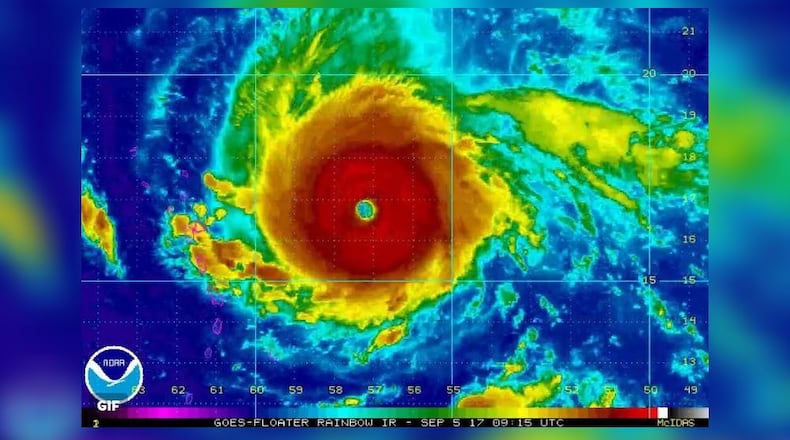The science is clear: Burning fossil fuels is warming the Earth’s oceans and atmosphere, fueling more destructive hurricanes such as the ones wreaking havoc across the South.
“There is not a climate change ‘debate’ — even that word implies something that isn’t true at this point,” said John Knox, associate director of the atmospheric sciences program at the University of Georgia. “That’s kind of like saying, the gravity ‘debate.’ ”
There are legitimate policy disagreements over how the country should adapt, Knox said, but whoever wins the presidency in November will have to deal with the reality that human activity is warming the planet. These changes in climate are manifesting in floods, fires, drought and storms that threaten lives, property, critical infrastructure and food supply.
The two major U.S. presidential candidates offer starkly different views on climate change and the government’s role in addressing it.
Former President Donald Trump dismisses the science of climate change as a “scam” and a “hoax,” promising to lower energy prices by cutting government regulations on fossil fuels and incentivizing oil and gas production.
Vice President Kamala Harris calls climate change a “global challenge” and is running to protect and expand the government’s role in tackling climate change by regulating fossil fuels and incentivizing the use of renewable energy.
Energy: ‘Drill, baby, drill’ vs. drill with caveats
U.S. domestic energy policy has global effects when it comes to the climate.
Most planet-warming greenhouse gases are emitted by burning fossil fuels such as oil, gas and coal for energy. Fossil fuels account for more than 80% of the global energy mix, with the U.S. consistently ranked as both a top producer and consumer.
Trump has promised to “drill, baby, drill,” a phrase coined at the 2008 Republican National Convention. The Trump and Republican Party platform calls for making the U.S. the No. 1 producer of oil and gas in the world — which it already is — by lifting “restrictions” on American energy production.
In addition to boosting fossil fuel production, Trump also wants to do away with new pollution standards for vehicles and power plants that would force utilities and manufacturers to drastically reduce their reliance on oil and gas. Similarly, Republicans have cast renewable energy incentives as government overreach.
Harris, on the other hand, often touts her role as the tiebreaking vote in passing the Inflation Reduction Act, one of Democrats’ signature legislative achievements under President Joe Biden and the largest investment in climate mitigation in history. She has promised to continue the tax breaks and other incentives Democrats say are building a “clean energy economy,” pointing to a slew of new electric vehicle, solar and battery manufacturers.
But Harris has also sought to cast herself as a business-friendly pragmatist. She’s boasted about the country achieving record levels of oil production during her tenure as vice president, casting the increase as a strategic decision to avoid overrelying on foreign oil. The U.S. has been a net energy exporter since 2019.
Disaster response
Trump and Harris have toured areas ravaged by Hurricane Helene, the deadliest hurricane to hit the country since Katrina in 2005. Each also sought to draw the public’s attention to their campaign issues.
Trump used the opportunity to attack Biden’s response, including making false claims that the president was withholding aid from Republican states. While Trump has acknowledged the historic severity of the storm, he has not discussed it in the context of climate change. His platform does not address climate change or disaster response directly.
Harris has, in turn, criticized Trump for spreading falsehoods about the disaster response, such as claiming that Biden had not reached out to Georgia Gov. Brian Kemp, when Kemp said the president had in fact called him and offered assistance. Her campaign calls for increasing resilience to “climate disasters” by continuing Biden’s policies.
While Trump’s campaign has not outlined a plan for responding to natural disasters such as storms, Project 2025, a policy blueprint written by many of his allies and former officials from his administration, calls for defunding hurricane research and “commercializing” the National Weather Service that issues severe weather warnings. Trump has disavowed Project 2025 and said it does not represent his campaign.
Note of disclosure
This coverage is supported by a partnership with Green South Foundation and Journalism Funding Partners. You can learn more and support our climate reporting by donating at ajc.com/donate/climate/.
About the Author
Keep Reading
The Latest
Featured




